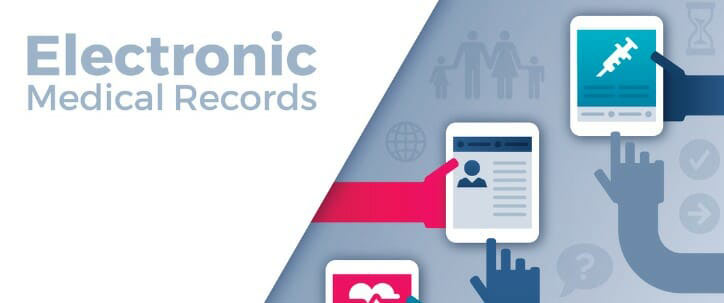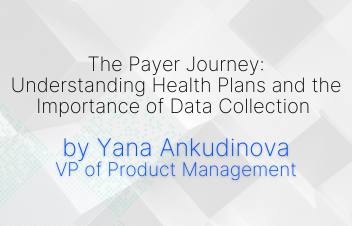
Each year HEDIS rating criteria is updated, meaning your organization needs to stay up-to-date on the latest news and trends for HEDIS compliance audits. Below we explore some common questions about HEDIS and review important information your team should know now and in the future.
What is HEDIS?
HEDIS (Healthcare Effectiveness and Data Information Set) is part of a review process for Medicare Advantage plan quality measures. This review is part of the Star rating system, which according to RAC Monitor was developed by the Centers for Medicare & Medicaid Services (CMS) to rate health plan performance for Medicare Advantage programs and Medicare risk adjustment initiatives.
HEDIS works as a government rating tool. After data has been collected and submitted to the National Committee for Quality Assurance (NCQA), health plans receive a score. Depending on the score of a health plan, payers may receive considerable Medicare financial incentives if a score exceeds a certain level.
Why is HEDIS important to patients and payers?
The Star rating system is reviewed annually to update patients and the healthcare industry about plan performance. RAC Monitor explains that the star system can also benefit providers, “The ratings give hospitals and health systems a view into each plan’s effectiveness and quality. This information becomes increasingly valuable to providers during payer contract negotiations.” Below is information on what your healthcare organization should know about HEDIS in 2022.
What is a HEDIS audit?
The HEDIS audit is performed by an NCQA licensed organization and addresses six elements, according to NCQA.
- Information practices and control procedures.
- Sampling methods and procedures.
- Data integrity.
- Compliance with HEDIS specifications.
- Analytic file production.
- Reporting and documentation.
How does the HEDIS audit process work?
The process contains two parts – information system capabilities and HEDIS specification standards.
According to NCQA, the first part of the audit is a review of an organization’s overall information systems capabilities for collecting, storing, analyzing and reporting health information.
The second part of the process addresses the organization’s compliance and conventional reporting practices and follows these domains as specified by NCQA:
- Effectiveness of Care.
- Access/Availability of Care.
- Experience of Care.
- Utilization and Risk Adjusted Utilization.
- Health Plan Descriptive Information.
- Measures Collected Using Electronic Clinical Data Systems.
After the completion of the audit, your organization will receive a report containing the plan’s results.
HEDIS audits are important for Medicare and Medicaid health plans. As ratings are reevaluated each year, making sure your health organization stays in line with compliance and meets a strong Star rating will keep payers and patients satisfied.
Tips for Managing Payer Requests During the Upcoming HEDIS Audit Season
In working with payer record reviews, several practical strategies have emerged to minimize payer-provider abrasion and reduce operational costs. Providers should take a proactive approach and follow these three tips:
1) Engage early.
The National Committee for Quality Assurance (NCQA) is proactive in announcing which quality measures will be targeted for review in the year ahead. Proactive providers should reach out to their contracted payers and health plans in December or January to discuss the upcoming HEDIS Review season. With the potential for thousands of medical records to be requested between January and May, two conversations are critical: expected volumes and reimbursement for the provider’s efforts. Keep in mind this dialogue sets the tone for the relationship.
2) Determine expected volumes.
The most important conversation that should occur between payer and provider is about determining the number of record requests that will be received. Be sure to plan ahead for the increased staff workload needed to produce the required medical record documentation. The number of requests depends on the size of the hospital or the healthcare system. Each payer has a designated HEDIS Review team responsible for the program. Contact the team lead or local health plan representative to schedule this conversation during the HEDIS Review planning period in December or January.
3) Set rate for records.
The initial perception in the industry suggested that providers could not charge payers for the time, manpower, and mailing costs associated with producing records for a HEDIS Review. However, this is not the case. Payers understand the tremendous staff burden on providers and are willing to reimburse them for their efforts.
How Your Release of Information Vendor Can Help
At MRO, we utilize our industry knowledge and “easy to work with” approach to create partnerships with payers and their vendors to streamline the processing of HEDIS Review, Medicare Risk Adjustment and Commercial Risk Adjustment projects.
This process includes establishing a rate per chart for these projects, as payers are willing to pay for review requests regardless of the language in the managed care contracts.
We have found that most payers are reasonable and understand the cost associated with producing these high-volume requests. Hence, why they are willing to pay for them. MRO ensures that the cost of producing these records is not a burden on our clients.
Watch the below video interview to learn more about reducing payer-provider abrasion, and what MRO is doing to help providers handle these payer review requests.



